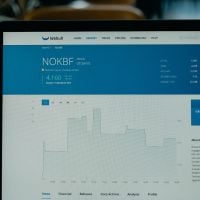Deadline: 27-Mar-23
The United Nations Development Programme (UNDP), within the “Civil Service Training for the 21st Century in the Republic of Serbia” Project, opens Call for Proposals for Grant Competition on Flagship Public Sector Innovation Programme intended for academic institutions – universities (local or international) which are not funded by governments (state owned institutions) and civil society organizations, think-tanks (local or international).
The objective of the UNDP Call for Proposals for the Public Sector Innovation Programme is development and implementation of a flagship program in order to build better understanding and strengthen skills among a group of senior civil servants relating to the design and implementation of innovations in public administration. This should make them more capable of pursuing innovation in both the short and medium term. The programme will introduce trainees to the concept of innovation in the public sector and enable them to identify where innovation could be made in their organization or policy area or in the wider Serbian public administration, as well to apply the acquired knowledge, i.e. to have the project support in introducing innovations in their environment.
The programme will be implemented by the National Academy for Public Administration as a national partner, with support of the UNDP Serbia within the project “Civil Service Training for the 21st Century in the Republic of Serbia” funded by the Swedish International Cooperation Agency (SIDA).
Aims
- The Project aims to build on the previous achievements which were recognized both in Serbia and internationally, and provide effective support to the National Academy for Public Administration (NAPA) in
- further building and strengthening its internal capacity at staff/trainer and institution level,
- designing new, innovative and competitive training programs and redesigning of existing ones in line with needs of the public sector and the latest global trends of public administration for aligning to the 4th industrial revolution,
- introducing modern e-learning platforms using effective electronic multimedia educational technologies and
- supporting NAPA’s international cooperation activities, educational research, as well as outreach activities in order to promote and ensure greater visibility of NAPA’s mission and activities.
Key Priorities
- The programme’s structure and dynamic should render the study viable and efficient for trainees. The learning methods that will be adopted should, therefore, be tailored towards achieving those two priorities, with an emphasis on innovative learning methods such as: flipped classroom, design thinking, peer teaching, VR learning, project-based learning etc. The program should consist of 15-20 trainings and workshops and whole implementation of training should not last more than 3-4 months.
- In terms of viability, reducing the amount of preparation and revision material and dividing it up could be key to enable trainees to sustain continuous engagement with the programme. The programme should provide for a manageable workload and a preparation and revision dynamic that enables trainees to engage with the study material on a regular basis. They have busy work schedules, a factor that was mentioned in the survey as a major barrier to their potential participation in the training. They will, therefore, have very little or no time to prepare for the session if this requiresthem to spend a long stretch of time on the preparatory material (e.g. a reading). The preparatory material must therefore be divided into “digestible chunks” to enable gradual preparation in several and relatively short periods of time. Following the rules of good visualization, skillful fragmented materials not only enable trainees to make use of the short windows of time available to them in their daily lives, but, as studies on learning methods in adult education show, also positively influence their learning efficiency. This has been shown to be an effective learning method that promotes the integration of knowledge, cross-thematic integration and the development of transferable skills in general.
- Next, the preparatory materials should ideally vary in format and style. Instead of having just readings, it would be more useful to combine reading pieces with multimedia materials, presentations and/or prerecorded training bites.
- The programme would ideally be taught by renowned experts in the fields of public management and public administration and the related or sub-fields, with the focus on public sector innovation, that comprise the curriculum. It would be helpful to the achievement of the programme’s objectives if (most of) the trainers/professors had experience in teaching and/or training public administration professionals.
- The survey respondents unanimously expressed a preference for a more “hands-on approach” to study in the training programme, stressing that the traditional training format could be a demotivating factor. This survey suggests that the method for conducting the flagship programme should be – the “flipped classroom” method, which inverts the sequence of activities of the traditional classroom model. In the “flipped classroom” method, trainees go through the learning material before a training/workshop. This enables them to familiarize themselves with key course materials and concepts and leaves it up to the trainers/professors to use session time to guide each trainee through active, practical and innovative applications of given subject.
Funding Information
- Individual grants requested under this Call for Proposals should not exceed USD 100,000. Proposals with the grant staff salary and administrative costs exceeding 25% of the total budget will be disqualified without further consideration. Co-funding and in-house contributions are strongly encouraged.
Outcomes
- The learning outcomes of the proposed flagship programme should be built around the following demonstratable learning outcomes, namely that, trainees will be able to:
- Demonstrate an understanding of the concept of innovation in public administration;
- Demonstrate familiarity with a wider set of governance and regulatory approaches and techniques that can be used to complement or enhance current governance approaches that are in place in Serbia in efforts to bring the state administration closer to the ideals of modern and functional civil service/public administration;
- Identify where innovation could be implemented in their own organisation and/or policy;
- Improve their own culture of innovation and develop a stronger personal inclination towards forward-looking and problem-solving thinking looking for innovative solutions;
- Based on the framework and knowledge learned in the flagship programme, propose a set of specific innovations that could be implemented in their own organisation/sector, in the broader policy field or in other parts and levels of the Serbian public administration;
- Evaluate the prospects for successful implementation of the proposed innovation(s), anticipate their success and failure factors and suggest how these could be managed.
Eligibility Criteria
- Application for this grant competition can be submitted by:
- Academic institutions – universities (local or international) which are not funded by governments (state owned institutions)
- Civil society organizations, think-tanks (local or international)
- Additional criteria for mentioned institutions/organizations are:
- Minimum 10 years of experience in the delivering lectures and trainings.
- Delivered at least 5 similar projects during the last 10 years.
- Able to gather a team for implementation of the program with work experience in relevant field (not less than 7 years) and education in relevant field. Applicants shall submit CVs of all team members.
- Applicants can submit only one proposal.
For more information, visit UNDP.









































